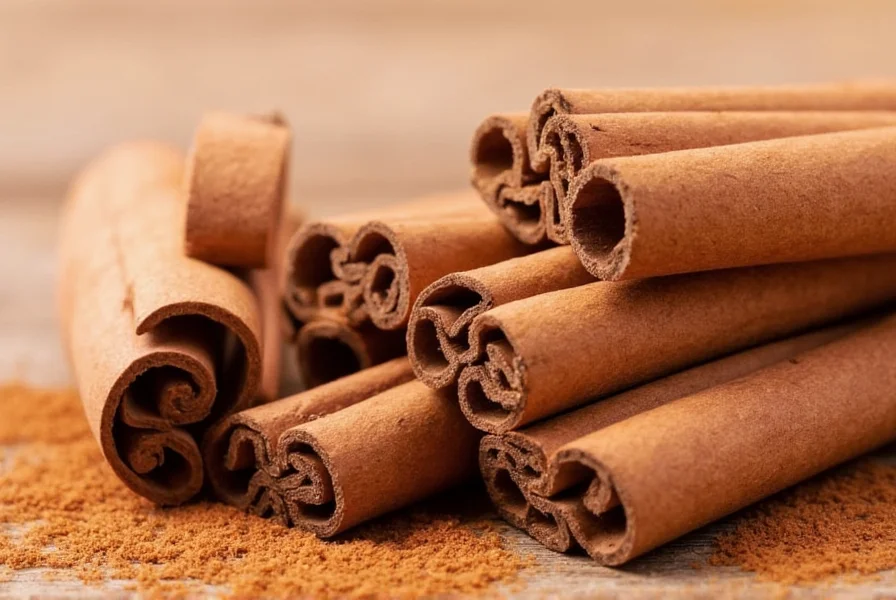Cinnamon has been prized for both culinary and medicinal purposes since ancient times. This fragrant spice, derived from the inner bark of Cinnamomum trees, contains powerful compounds that may offer significant health advantages when consumed appropriately. Understanding the science behind cinnamon's properties helps separate evidence-based benefits from popular myths.
Types of Cinnamon and Their Differences
Not all cinnamon provides the same health profile. The two primary varieties available commercially are:
| Characteristic | Ceylon Cinnamon | Cassia Cinnamon |
|---|---|---|
| Also known as | "True" cinnamon | Chinese cinnamon |
| Source | Cinnamomum verum | Cinnamomum cassia |
| Coumarin content | Very low (0.004%) | High (5-10%) |
| Taste profile | Milder, sweeter | Stronger, spicier |
| Price | More expensive | More affordable |
These differences significantly impact health considerations, particularly regarding coumarin—a compound that may cause liver damage in high doses. For regular consumption, Ceylon cinnamon represents the safer option for experiencing cinnamon health benefits without potential risks.

Key Bioactive Compounds in Cinnamon
The health-promoting properties of cinnamon stem primarily from its rich composition of bioactive compounds:
- Cinnamaldehyde (60-90% of essential oil): Provides distinctive flavor and aroma; demonstrates anti-inflammatory and antimicrobial properties
- Polyphenol antioxidants: Among the highest of all spices, fighting oxidative stress
- Eugenol: Contributes to anti-inflammatory effects
- Linalool: May support neurological health
These compounds work synergistically to potentially deliver the cinnamon antioxidants and health benefits researchers have observed in laboratory and clinical settings.
Scientifically Supported Health Benefits
Blood Sugar Regulation
One of the most researched aspects of cinnamon's health qualities involves blood sugar management. Multiple studies indicate cinnamon may improve insulin sensitivity and lower fasting blood glucose levels. A comprehensive review published in the Journal of the Academy of Nutrition and Dietetics found that cinnamon supplementation reduced fasting blood glucose by 15-27 mg/dL in people with type 2 diabetes.
The mechanism appears to involve cinnamon's ability to mimic insulin and enhance glucose uptake by cells. For those exploring natural blood sugar regulation with cinnamon, most studies used doses between 1-6 grams daily (approximately ½ to 2 teaspoons), with effects becoming noticeable after several weeks of consistent use.
Anti-Inflammatory Properties
Chronic inflammation contributes to numerous health conditions. Cinnamon's cinnamaldehyde and polyphenols demonstrate significant anti-inflammatory effects in laboratory studies. Research in the Nutrition Research journal showed that cinnamon supplementation reduced inflammatory markers like TNF-α and IL-6 in participants with metabolic syndrome.
These cinnamon anti-inflammatory properties may help protect against inflammation-related conditions, though more human trials are needed to determine optimal dosing protocols for specific inflammatory conditions.
Heart Health Benefits
Several studies suggest cinnamon may improve multiple heart disease risk factors. Research published in Diabetes Care found that cinnamon consumption reduced total cholesterol, LDL cholesterol, and triglycerides in people with type 2 diabetes, while maintaining HDL ("good") cholesterol levels.
The spice's potential heart health benefits appear connected to its antioxidant content and ability to improve blood vessel function. However, these effects should complement—not replace—established heart health strategies like balanced nutrition and regular exercise.
Safety Considerations and Potential Risks
While cinnamon offers potential health benefits, important safety considerations exist:
- Coumarin content: Cassia cinnamon contains high levels of coumarin, which in excess may cause liver damage. The European Food Safety Authority recommends a maximum daily intake of 0.1 mg coumarin per kilogram of body weight.
- Allergic reactions: Some individuals may experience mouth sores or skin irritation from cinnamon.
- Medication interactions: Cinnamon may interact with blood thinners, diabetes medications, and liver-affecting drugs.
- Pregnancy considerations: High doses may not be advisable during pregnancy.
For regular consumption, experts generally recommend limiting Cassia cinnamon to no more than 1 teaspoon (about 2.5 grams) daily, while Ceylon cinnamon allows for more generous use. Those with liver conditions should consult healthcare providers before regular cinnamon supplementation.

Practical Recommendations for Consumption
To safely incorporate cinnamon's health qualities into your diet:
- Choose Ceylon cinnamon for regular, long-term use to minimize coumarin exposure
- Start with small amounts (¼-½ teaspoon daily) to assess tolerance
- Combine with black pepper to potentially enhance absorption of beneficial compounds
- Add to foods rather than taking as isolated supplements for better nutrient synergy
- Consider timing—adding cinnamon to carbohydrate-rich meals may help moderate blood sugar response
For those exploring how much cinnamon per day is safe, most research suggests 1-3 grams (½ to 1½ teaspoons) of Ceylon cinnamon provides potential benefits without significant risk for healthy adults. Consistency matters more than large single doses—daily moderate consumption appears more beneficial than occasional high intake.
Conclusion
Cinnamon represents a promising natural compound with multiple potential health benefits supported by growing scientific evidence. Its ability to potentially improve blood sugar regulation, reduce inflammation, and support heart health makes it valuable for preventive health strategies. However, understanding the differences between cinnamon types for health benefits and respecting appropriate consumption limits ensures you maximize benefits while minimizing potential risks.
As with any dietary component, cinnamon works best as part of a balanced, varied diet rather than as a standalone solution. Those with specific health conditions should consult healthcare providers to determine how cinnamon might fit into their individual health plans.
Frequently Asked Questions
What's the difference between Ceylon and Cassia cinnamon for health benefits?
Ceylon cinnamon ("true" cinnamon) contains significantly lower levels of coumarin—a compound that may cause liver damage in high doses—compared to Cassia cinnamon. While both types offer similar antioxidant and anti-inflammatory properties, Ceylon is safer for regular, long-term consumption. Most scientific studies on cinnamon health benefits don't distinguish between types, but for daily use, Ceylon provides the same potential benefits with reduced risk.
How much cinnamon should I consume daily for blood sugar benefits?
Research on cinnamon for blood sugar regulation typically uses doses between 1-6 grams (approximately ½ to 2 teaspoons) daily. For most people seeking the scientific benefits of cinnamon for blood sugar without potential risks, 1-3 grams (½ to 1½ teaspoons) of Ceylon cinnamon daily appears effective and safe. Effects typically become noticeable after 4-8 weeks of consistent use. Those with diabetes should monitor blood sugar closely and consult their healthcare provider before using cinnamon as a complementary approach.
Can cinnamon replace diabetes medication?
No, cinnamon should not replace prescribed diabetes medications. While research shows cinnamon may help improve insulin sensitivity and lower blood glucose levels, its effects are modest compared to medication. Cinnamon may serve as a complementary approach alongside conventional treatment, but never as a substitute. People with diabetes should always consult their healthcare provider before making any changes to their treatment regimen and should continue monitoring blood sugar levels regularly.
Does cinnamon really help with weight loss?
There's limited direct evidence that cinnamon causes significant weight loss. Some studies suggest it may help regulate blood sugar and improve metabolism, which could indirectly support weight management efforts. However, cinnamon alone won't produce meaningful weight loss without accompanying dietary changes and physical activity. The claim that cinnamon dramatically boosts metabolism or burns fat lacks strong scientific support. For sustainable weight management, focus on overall dietary patterns rather than relying on single food components.











 浙公网安备
33010002000092号
浙公网安备
33010002000092号 浙B2-20120091-4
浙B2-20120091-4